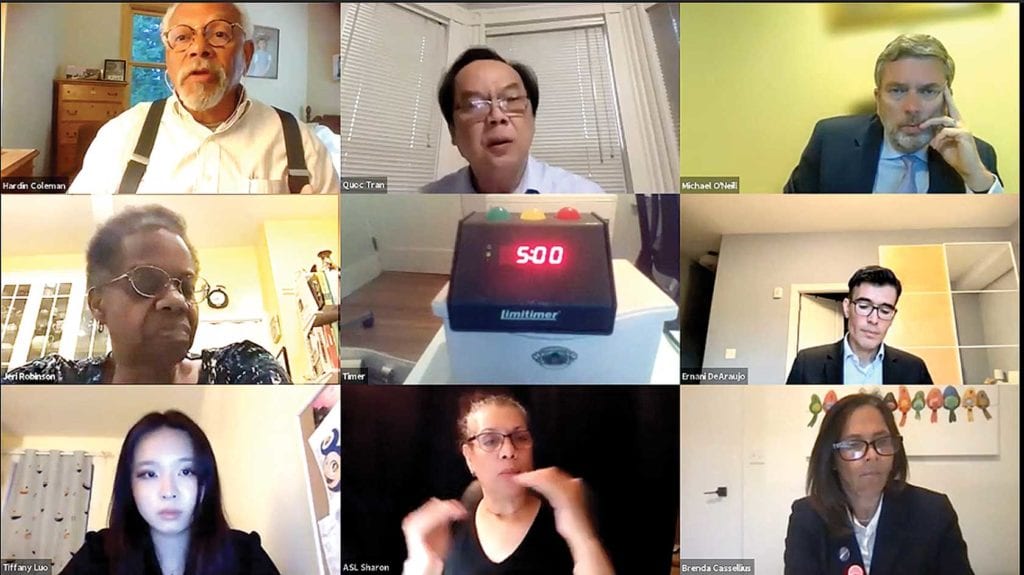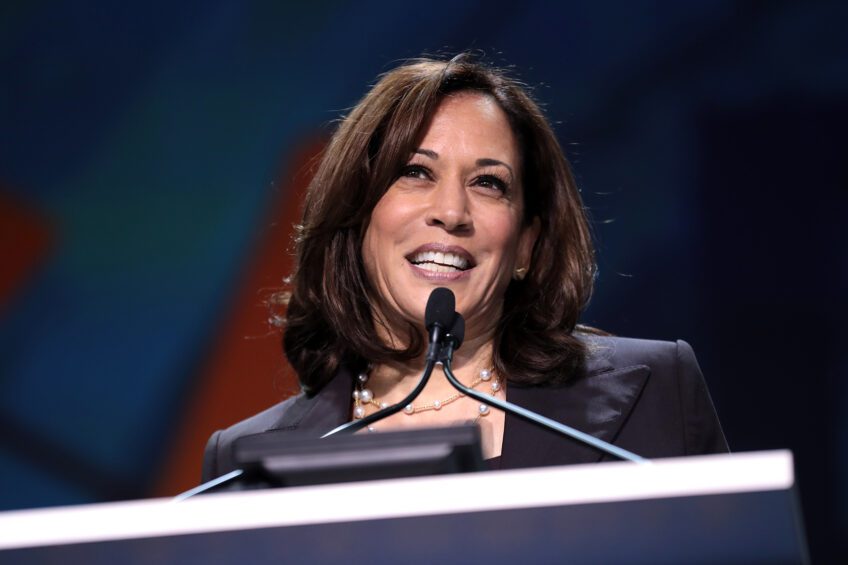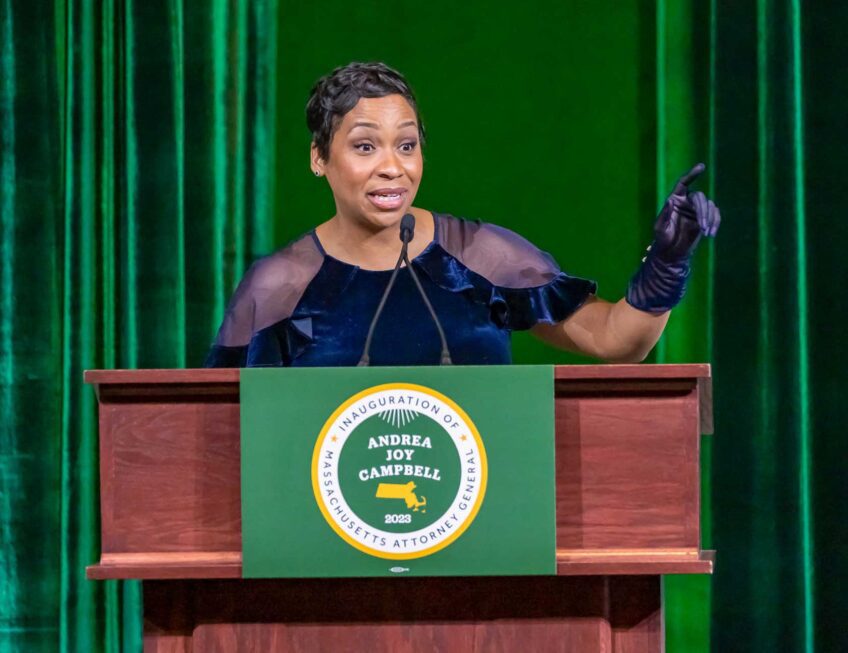Arroyo, Mejia advance home rule petition for elected school committee
A separate ballot question will gauge support for elected body

Boston City Councilors Ricardo Arroyo and Julia Mejia announced Monday a proposed home rule petition for an elected Boston School Committee.
If adopted and signed by the governor, the petition would, by 2026, shift the School Committee, which is responsible for governing Boston Public Schools, from its current seven members who are appointed by the mayor into a 13-member body for which all seats are elected by residents of Boston.
Under the proposal, the committee’s new structure would be like that of the City Council, with one seat for each of the nine electoral districts and three at-large seats to be filled during municipal elections. The 13th seat would be filled by a student representative elected by BPS students through the Boston Student Advisory Council. Under the new structure, the student member would have voting powers, a shift from the current student member’s advisory role.
The School Committee’s current structure was put in place by a 1991 home rule petition. Before that, since the formation of the first school committee in Boston in 1789, the body was elected.
In a press release, Mejia said the shift to an elected body is important to bring the voice of residents of Boston into the school committee.
“We’ve always said that nothing about us, without us, is for us,” Mejia said. “For too long, we have not had a voice in deciding who represents our parents, our teachers, and our children when it comes to designing the future of our school district. Changing to an elected School Committee is an opportunity to lead with the people’s voice, and we would not be here if it weren’t for the advocates holding us all accountable to the work.”
If approved, the shift to an elected body would take place over the next five years in phases. Beginning in 2022, the student member would have voting powers; In 2024, three at-large members would join, through a municipal election, with the seven other members still appointed by the mayor; and in January of 2026, the committee would fully shift to the all-elected 13-member structure.
The city councilors’ proposal comes alongside a petition organized by the Boston Coalition of Education Equity (BCEE) to put an advisory ballot question on the November municipal ballot regarding electing the school committee. The ballot question would be non-binding, but according to a press release, supporters hope it would put pressure on the mayor and City Council to move forward with the switch.
Lisa Green, a BPS parent and member of the BCEE, has helped get the petition moving. She said she has had experiences where she has gone to School Committee meetings to comment on proposed policies and felt that she was listened to, only to see committee members vote the other way because, she said, the members are bound by the will of the mayor.
“A good school committee member is one that’s going to be responsive to their community,” Green said. “What we can’t continue to have is School Committee members who are knowledgeable, well-meaning experts in the field of education — they ask the right questions, they listen to public testimony, they’ll even express, sometimes, solidarity with the voice of the people —[who] then go vote the other way because they’re constrained by the political agenda of the mayor.”
Tanisha Sullivan, president of the Boston branch of the NAACP, said that, given the importance of education, allowing the people of Boston more say in running the public school’s governing body is a valuable step.
“Public education is a cornerstone of our community and critically important to help ensure that our young people have the opportunity to reach their full potential,” Sullivan said. “Having an elected school committee will allow for more active engagement of families, students, educators and other stakeholders in the policymaking of our school district.”
The conversation over an elected or appointed school committee is also spilling over into Boston’s mayoral race.
In their responses to the Progressive Massachusetts questionnaire, mayoral candidates Kim Janey, Michelle Wu and Andrea Campbell said they support a hybrid School Committee with some members appointed by the mayor and others elected by residents of the city. Annissa Essaibi George said she proposes a nine-member body that is partially appointed by the mayor and partially appointed by the City Council. In the surveys, John Barros was the only candidate to say he opposes changing the structure of the council.
In a statement emailed to the Banner, Janey said that she thinks it is important to create accountability toward the public while also maintaining accountability to the mayor.
“I support exploring a hybrid model for the school committee, to include appointed, elected and additional youth members with voting power,” Janey said. “While more accountability to parents, youth and stakeholders is welcome, it is absolutely essential that a direct line of accountability to the mayor be preserved.”
Ruby Reyes, president of the Boston Education Justice Alliance, said that she thinks a hybrid committee that is both elected and appointed is incongruous with other democratically governing bodies.
“We don’t have a hybrid mayor; we have a person who’s elected by the residents of Boston,” Reyes said. “There’s no move to not have a fully-elected City Council. These are positions that are vital to policymaking and decision-making, but nobody’s questioning whether or not that should be a democratic process.”
For her part, Green said the ballot question was intentionally left open-ended, leaving the final structure — whether hybrid or fully elected — to be determined by an open process. She said she sees the home rule petition put out by Arroyo and Mejia, with whom she’s worked on the issue, to be more of a placeholder.
“You couldn’t put a ‘TBD’ in there,” Green said. “We might have liked that: ‘TBD, depending on the public process,’ but that’s not how it works. They had to propose something, so they came up with that structure. But they have committed to a process to arrive at the eventual final structure. [What’s in the petition] is just a boilerplate or a starting point.”
Green said she sees the eventual structure of the school board as currently up in the air. The important piece is that it better reflects the will of the people of Boston.
“The goal of the signers of the ballot petition is to democratize the governance of BPS, and the goal of the home rule petition is to arrive at that eventual structure of the school committee in the most democratic way possible,” Green said. “We’re not saying ‘Restore the old school committee’; it’s going to be a new structure, co-designed with the people of Boston, through that open public process.”




